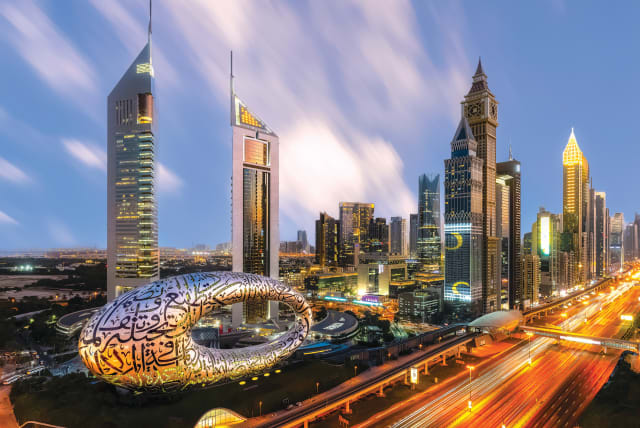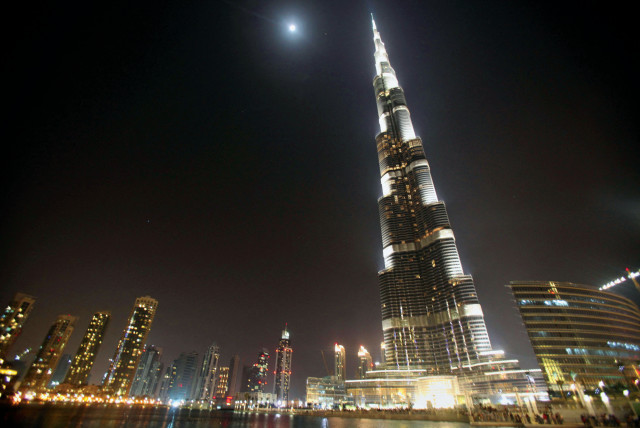Human rights are progressing in the UAE - opinion

The national leadership of the UAE has stated many times that it wants the country to be a progressive, tolerant and rights-respecting nation. The challenge for leadership is how to make this happen.
The United Arab Emirates (UAE) rights record is being examined this week by the UN Human Rights Council’s (UNHRC) Universal Periodic Review (UPR), where the UAE will spell out steps it has taken to implement recommendations posed during previous reviews and highlight recent human rights developments in the country.
Several weeks ago, I had dinner with a friend from Dubai who founded the award-winning Crossroads of Civilizations Museum in the city. This museum contains artifacts and exhibits recording the historic role of his homeland as a cultural crossroads of global trade routes between Europe, Africa and Asia. The key message of the museum is that human tolerance of diversity and multiculturalism in all its forms enables creativity and human development.
One of the galleries in the museum is called the Multi-faith Gallery. It has on display rare and precious Christian, Islamic and Jewish books, all treated with equal care and respect. It might come as a surprise to some to learn that the museum reflects and embodies the UAE’s constitution, which outlines the freedoms and rights of all citizens.
It protects civil liberties, including freedom of speech and the press, peaceful assembly and association, and the practice of religious beliefs. All people, irrespective of their race, nationality, religion and social position, are equal before the law.
The national leadership of the UAE has stated many times that it wants the country to be a progressive, tolerant and rights-respecting nation. The challenge for leadership is, of course, how to make this happen.
Is the UAE a progressive, tolerant and rights-respecting nation?
Earlier this year, a coalition of 53 NGOs concerned with monitoring human rights conditions, including the International Movement for Peace and Coexistence (IMPAC), presented a shadow report that reviewed the efforts and achievements of the UAE over the past 50 years. The shadow report is the report prepared by non-governmental bodies in response to the official report submitted by each member state of the Council to the UNHRC every four years.
The shadow report detailed how the UAE has made significant progress in promoting and protecting human rights in recent years and that these advances have significant implications for the wider Middle East region.
The coalition also organized an international symposium in Geneva, parallel to the 52nd session of the Human Rights Council, which discussed the existing and future challenges for human rights in the UAE.
DURING THE symposium, IMPAC considered the UAE’s educational provision, drawing on the research of Tel Aviv’s Institute for Monitoring Peace and Cultural Tolerance in School Education (IMPACT-se), which applies methodological standards based on UNESCO and UN declarations, and international recommendations and documents on education for peace and tolerance. In December 2021, IMPACT-se produced a detailed report following an in-depth audit of the Emirati curriculum.
In 2016, the UAE introduced its cutting-edge Moral Education (ME) curriculum, taught in all Emirates public and private schools across all grades, one through 12. This was an initiative launched under the directive of UAE President Mohammed bin Zayed to help all young people become morally autonomous adults by providing them with the competence to judge what is morally right. The materials have recently been revised to reflect positive aspects of the changing situation in the Middle East, in other words, the Abraham Accords.
According to Marcus Sheff, IMPACT-se’s CEO, the UAE’s new curriculum was already head and shoulders above those of other regional countries. Amongst its findings, IMPACT-se showed that materials used in Emirati schools are designed to show that prosperity and national pride are closely associated with peace and tolerance.
Engagement and cooperation with non-nationals and the world are applauded. Language and moral education programs encourage cultural diversity, curiosity and happiness. Students prepare for a highly competitive world; they are taught positive thinking and well-being. In terms of women’s rights, it supports active women’s participation in all walks of life.
President bin Zayed’s directive was as visionary as it was courageous since it revealed both the humanitarian concern and political will to effect change. This is an education system with direction. Direction is essential because if we do not know where we are going, then any road will do. The UAE is going in the right direction, as we are confident the UPR will show.
Other near neighbors of Israel are by stark contrast going in the wrong direction: Syria, Iraq and of course particularly Iran have little concern for happiness, tolerance or human rights.
The possibilities for learning from and building upon the impressive achievements in the UAE should be embraced widely. These pioneering initiatives can and should be replicated elsewhere, both in the Middle East and beyond. We trust that the UPR will agree.
The writer is the CEO of IMPAC, a Brussels-based international NGO, accredited at the European Parliament, promoting dialogue and democratic values. @IMPACoexistence
Jerusalem Post Store
`; document.getElementById("linkPremium").innerHTML = cont; var divWithLink = document.getElementById("premium-link"); if (divWithLink !== null && divWithLink !== 'undefined') { divWithLink.style.border = "solid 1px #cb0f3e"; divWithLink.style.textAlign = "center"; divWithLink.style.marginBottom = "15px"; divWithLink.style.marginTop = "15px"; divWithLink.style.width = "100%"; divWithLink.style.backgroundColor = "#122952"; divWithLink.style.color = "#ffffff"; divWithLink.style.lineHeight = "1.5"; } } (function (v, i) { });

